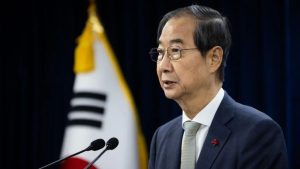
FIA statutes changes criticized for concentrating power within the governing body of Formula 1 were approved at the FIA general assembly in Rwanda on Friday. The controversial amendments, concerning the ethics and audit committees, have raised serious concerns among member clubs about transparency and governance.
Thierry Willemarck, the head of the Royal Touring Club of Belgium, expressed his worries about the changes, saying, “It is a concentration of power that we have to be worrisome about.” These changes give the FIA president and president of the FIA senate control over the ethics and audit committees, sparking fears of reduced accountability within the organization.
Process Under Fire
Opponents also raised concerns about the process through which these changes were made. Motorsport UK chairman David Richards criticized the lack of transparency, stating, “This is not an issue about what the changes might or might not be… This is a fundamental debate about how governance should work within the FIA.”
Both Richards and Willemarck pointed out that the FIA’s statute review commission had been bypassed when drafting the changes, and that the changes were put to a vote with no prior discussion before the general assembly. While Willemarck emphasized that the process was legal, he maintained that it lacked the necessary checks and balances for good governance.
FIA’s Stance on the Changes
In response to the criticism, the FIA explained the reasoning behind the changes. A spokesperson stated that the amendments aimed to “preserve and enhance the independence” of the ethics committee by reducing FIA administration involvement. However, critics pointed out that the new statutes still require the FIA president’s approval for any investigation to be launched, which they argue undermines the committee’s autonomy.
The FIA also addressed concerns about “continuous leaks to the media” of confidential information, stating that limiting the distribution of ethics committee reports was necessary. However, critics argue that this change limits oversight, placing power in the hands of just two individuals: the FIA president and the president of the senate.
On the audit committee, the FIA clarified that the body remains advisory to the senate but can only act if requested by the president of the senate. This limitation is seen by many as a significant blow to transparency and good governance.
Growing Opposition Among Member Clubs
Several member clubs, including those from Belgium, the UK, and Austria, have publicly opposed the changes, and there is growing discontent among European member clubs. The votes on the ethics and audit committee changes passed with 24.51% and 23.83% opposition, respectively, highlighting the level of dissent within the FIA.
Conclusion: A Shift in FIA Governance
The changes to the FIA statutes represent a significant shift in how the organization operates. While the FIA has defended the changes as necessary for independence and efficiency, the widespread criticism from member clubs points to deeper concerns about transparency and governance. As the debate continues, it remains to be seen how these changes will affect the future direction of Formula 1 and the FIA’s role in overseeing the sport.
- External Link: BBC Sport
- Internal Link: Eurasia Sports





